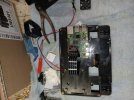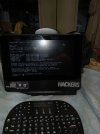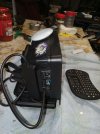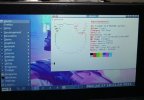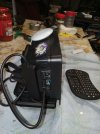Waay back in 2007, I bought a brand new Gateway computer and was happily running Windows XP on it. Then, Microsoft introduced Windows Vista. Suddenly, my brand new computer was having trouble running Vista with Norton to protect it from viruses (Norton was pretty much a virus itself). I was absolutely angry at having bought a brand new computer, which included nearly $100 for the Windows license, then having to subscribe to Norton Antivirus, then having to pay exhorbitant prices for any add-on software to make the computer useful, and then having it struggle to just boot up, much less run anything useful. There just had to be a better way!
So, after searching the Internet, I came up with Ubuntu and FreeBSD to try out. I immediately became disenchanted with ubuntu, because the first thing I encountered was having to purchase software again, so I turned to FreeBSD. In order to figure things out, I bought a book on FreeBSD (can't recall the title), but with that and the official documentation, I was able to get a system up and running with all the necessary software to make a useable and useful system. I tried to convert my family, but in 2007, schools were just learning that computers were useful tools, but, alas, Windows was the only OS they understood and in 2007, .doc format was the only thing they accepted.
So, since that time I have bounced around between Windows 7, macos, and linux, but in the past couple years I have returned to FreeBSD. Probably due to my previous involvement with it, I just feel more competent with FreeBSD than Linux. Windows 8 turned me away from MS again and I will never go back. Apple has now angered me with their forced/planned obsolescence in their iphones and my Macbook pro, so I won't be blowing a big wad of $$ on their gear anytime soon.
So, currently I run a 2015 HP laptop and a 21TB NAS (based on a 2006 Intel cpu) on FreeBSD 13.2-RELEASE, a very old Toshiba laptop on GhostBSD, an i5- based Linux box on Arch Linux, and a 2014 Macbook Pro that is no longer able to update due to all the bloatware Apple installs with every update on that tiny little non-upgradeable storage drive.
By the way, Windows Vista was the best thing that ever happened to Apple, but Apple is losing ground with their forced obsolescence. FreeBSD does everything I need and allows me to run my hardware until the hardware breaks. In my generation, the motto is "use it up, wear it out, make it do, or do without!" I absolutely hate throwing away hardware that still works. I do upgrade hardware when I have to, but I love buying a "new computer" for $50 and using it for another five years! FreeBSD lets me do that!

